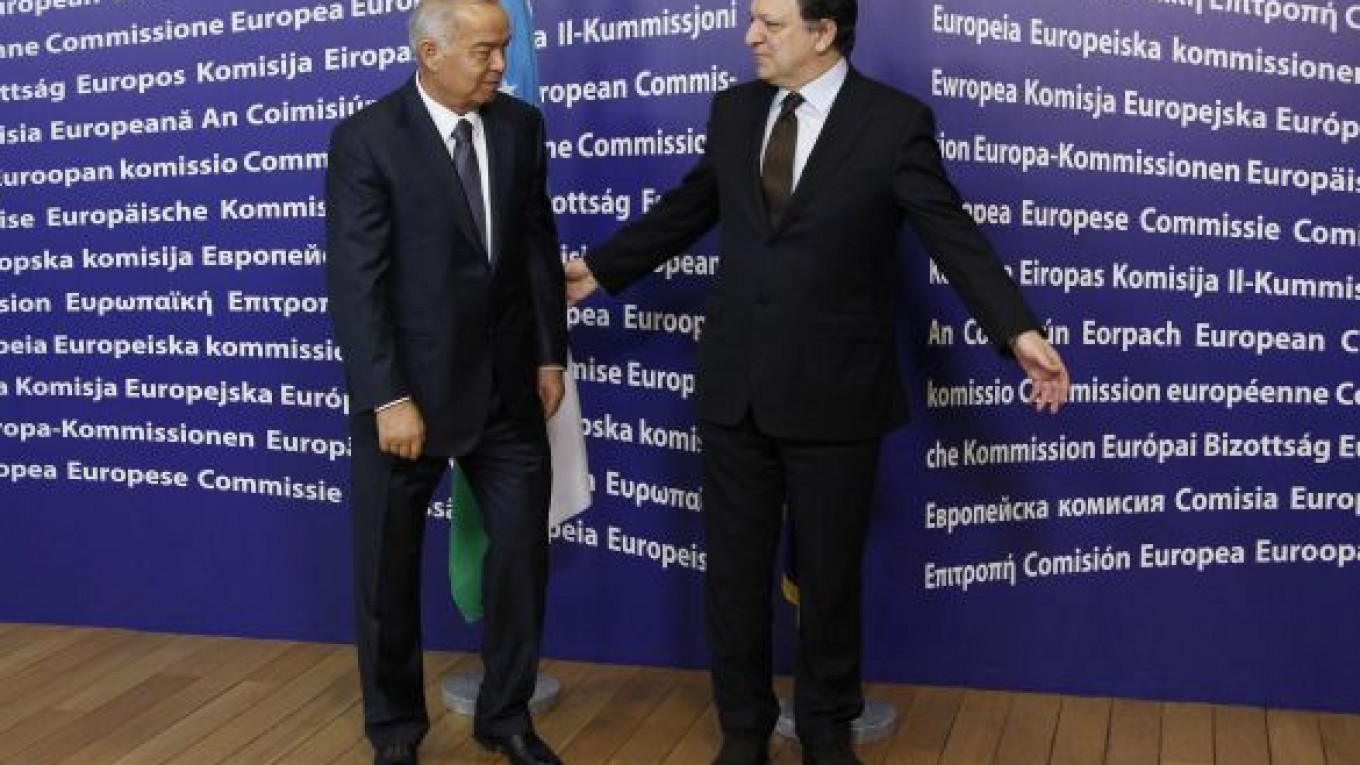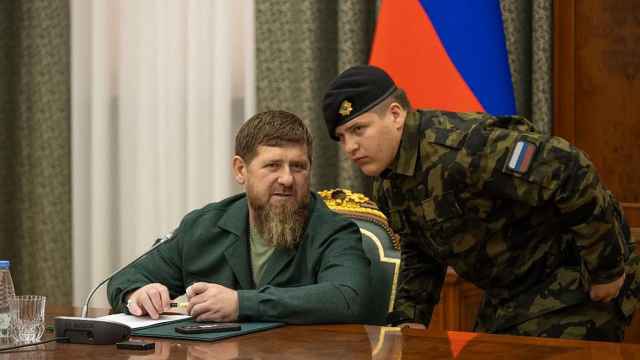BRUSSELS — EU Commission President Jose Manuel Barroso welcomed Uzbek President Islam Karimov to Brussels on Monday for talks denounced by activists as the latest example of the West ignoring abuses by repressive regimes and opting for improved relations rather than condemning rights violations.
"For him to be received warmly by Mr. Barroso is in a sense a culmination of this gradual capitulation," said Kenneth Roth, executive director of Human Rights Watch.
He called Karimov a "ruthless leader," and a Human Rights Watch report released Monday said Uzbekistan's human rights record remains "abysmal," with crackdowns on opposition and media, and persecution of religious believers.
"The European Union has epitomized this failure, this tendency to fall for subterfuge used by these governments to avoid serious pressure," Roth said.
But the EU Commission said Barroso would bring up the issue of human rights during his private talks with the Uzbek leader.
EU Commission spokeswoman Pia Ahrenkildo Hansen also called such meetings "critical, conditional engagement" and said the goal "is to confront the issues, not duck them." She said the EU often makes it clear "that human rights is non-negotiable."
In its annual report, Human Rights Watch decried what it called the increasing use of soft measures without any guarantees to ensure that changes occur in regimes.
The report criticized UN Secretary-General Ban Ki-moon for failing during a meeting with Chinese President Hu Jintao last year to publicly criticize China's rights record or its imprisonment of Chinese dissident Liu Xiaobo.
Ban has said he raised the issue of human rights publicly in three Chinese cities and in private talks with Chinese leaders.
Regarding the United States, the report said President Barack Obama's "famed eloquence … has sometimes eluded him when it comes to defending human rights." This was especially noticeable in contacts with countries that are important to U.S. interests, such as China, India, Indonesia, Egypt and Bahrain, the group said.
Human Rights Watch's list of most abusive countries included Belarus, China, Colombia, Congo, Cuba, Egypt, Indonesia, Iran, Myanmar, North Korea, Pakistan, Saudi Arabia, Yemen, and Zimbabwe. Without outside pressure, Roth said, the list will grow.
"A dictator will weigh this cost-benefit analysis and decide that repression pays. The aim of the international community is to make repression not pay," he said.
A Message from The Moscow Times:
Dear readers,
We are facing unprecedented challenges. Russia's Prosecutor General's Office has designated The Moscow Times as an "undesirable" organization, criminalizing our work and putting our staff at risk of prosecution. This follows our earlier unjust labeling as a "foreign agent."
These actions are direct attempts to silence independent journalism in Russia. The authorities claim our work "discredits the decisions of the Russian leadership." We see things differently: we strive to provide accurate, unbiased reporting on Russia.
We, the journalists of The Moscow Times, refuse to be silenced. But to continue our work, we need your help.
Your support, no matter how small, makes a world of difference. If you can, please support us monthly starting from just $2. It's quick to set up, and every contribution makes a significant impact.
By supporting The Moscow Times, you're defending open, independent journalism in the face of repression. Thank you for standing with us.
Remind me later.






